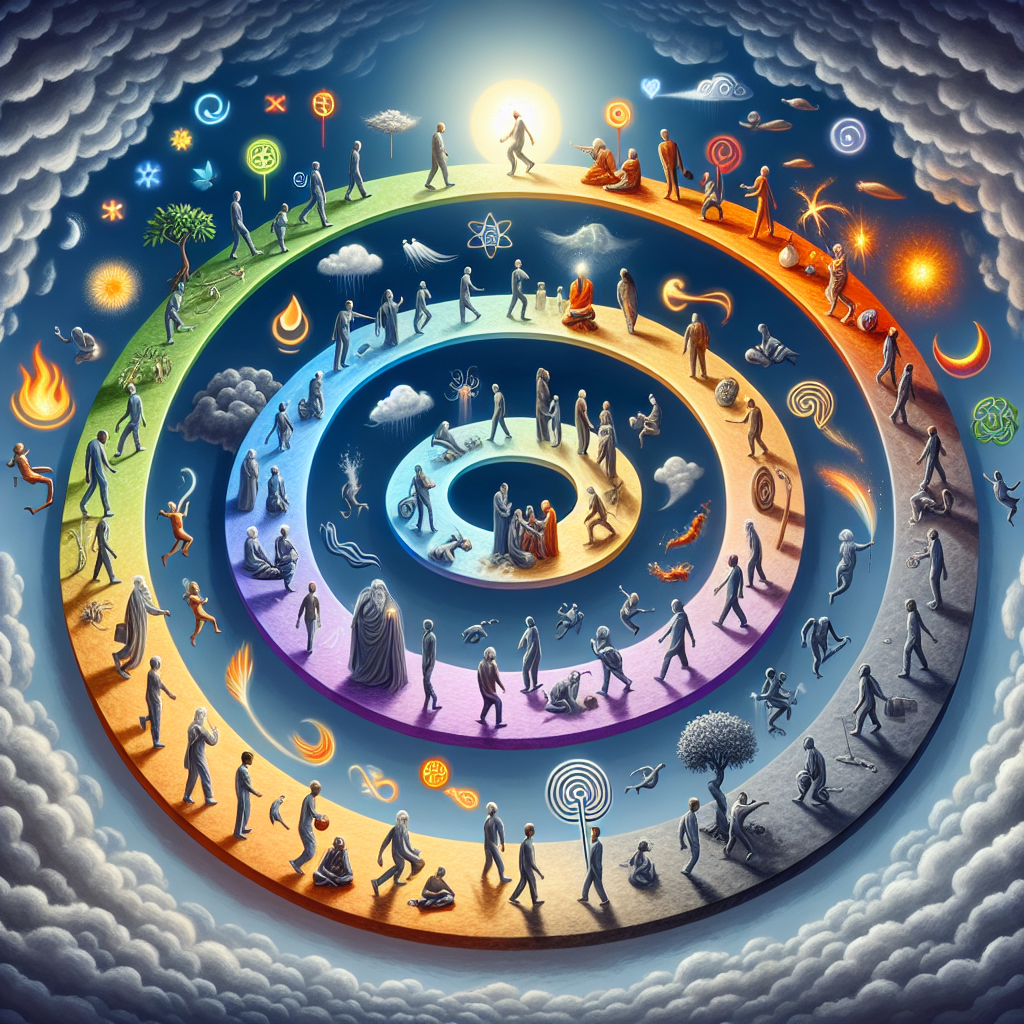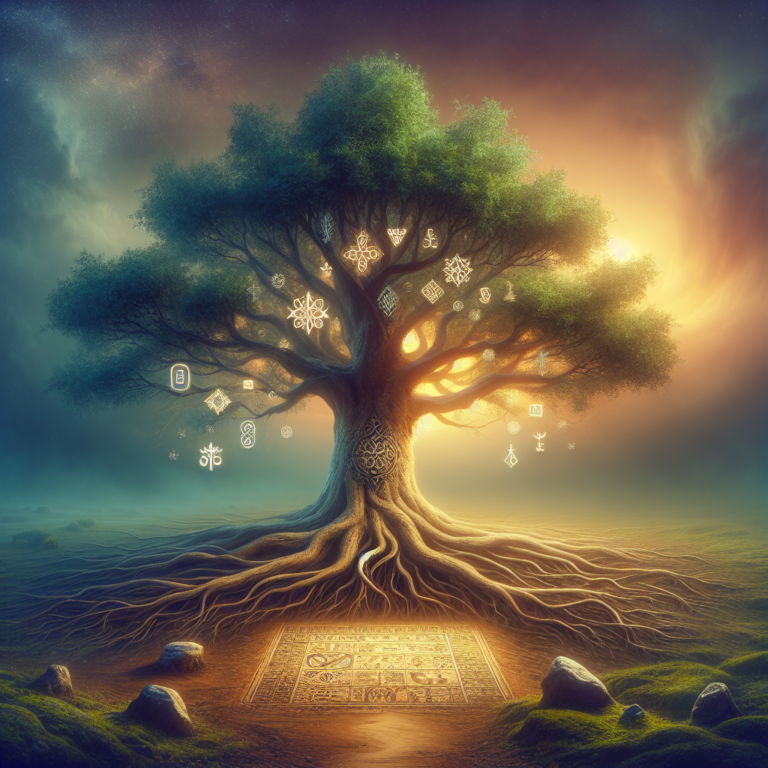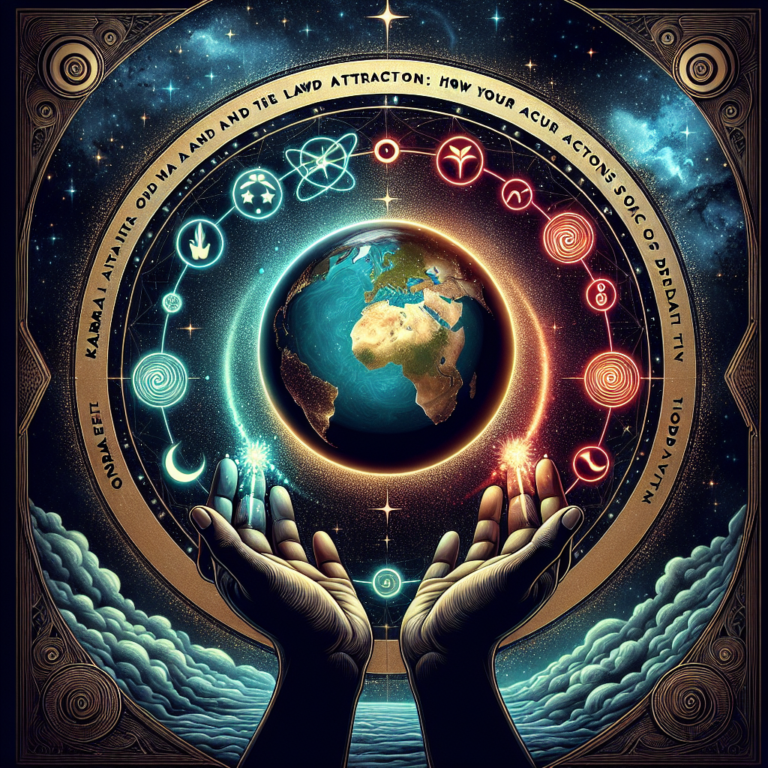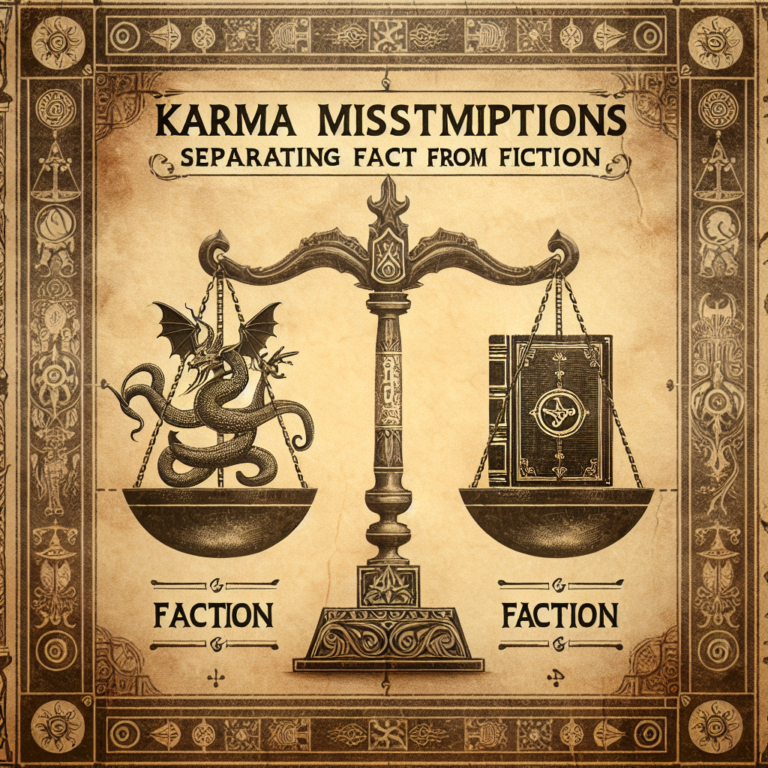The Karma Loop: How Our Actions Shape Our Destiny
Introduction
The concept of karma has transcended cultural boundaries, appearing in various philosophies and religions. At its core, karma represents the spiritual principle of cause and effect, where individuals’ actions—good or bad—will influence their future experiences. This intricate web of actions is often referred to as the "Karma Loop," elucidating how our present choices shape not only our destiny but also the environment around us. Understanding the Karma Loop can provide valuable insights into personal growth, ethical behavior, and the interconnectedness of humanity.
The Essence of Karma
Karma originates from ancient Indian philosophy, particularly in Hinduism and Buddhism. It is derived from the Sanskrit word "karmā," which means "action" or "deed." According to these traditions, every action has consequences, and these consequences manifest in this life or the next. However, karma goes beyond mere retribution; it’s a dynamic process that reflects the continuous interaction between an individual and the universe.
Karma is often simplified to the idea of "what goes around comes around," but this is an oversimplification. The true nature of karma is nuanced, encapsulating intention, action, and result. Each action carries a certain energy that influences the world around us, creating ripples that may not be immediately evident but inevitably shape our experiences.
The Mechanics of the Karma Loop
The Karma Loop consists of three key components:
Intention: The first step in the Karma Loop is intention. What motivates your actions? Genuine, compassionate intentions typically result in positive karma, while selfish or harmful intentions can lead to negative outcomes. Understanding the motivations behind your actions is crucial, as it sets the tone for the consequences that will follow.
Action: The second step consists of the actions we undertake. Every intention must be translated into action; this is where the karmic energy begins to manifest. Whether through spoken words, physical deeds, or transformative thoughts, the actions we take are the vehicle for our intentions. Positive actions, such as helping others, practicing kindness, or engaging in self-improvement, generate beneficial karma, while negative actions, such as deceit, harm, or neglect, create detrimental karma.
- Consequence: The final step of the Karma Loop is consequence, where the results of our actions return to us, either immediately or over time. These consequences can manifest as situations, feelings, relationships, or even health. The cycle then continues as new intentions arise based on these consequences, leading to new actions and ultimately shaping our destiny.
How Karma Shapes Our Destiny
Personal Growth: The Karma Loop inherently encourages self-reflection. Recognizing the outcomes of our actions can lead to growth opportunities. When we experience negative consequences from our behavior, it prompts us to reassess our intentions and actions, fostering personal development.
Impact on Relationships: Just as our actions affect our personal destiny, they also influence our relationships with others. Positive actions create a supportive network, leading to trust and connection, while negative actions can cause rifts and animosity, potentially isolating us. By practicing compassion and understanding, we build stronger bonds with others, altering our relational karma for the better.
Social Consequences: Karma extends beyond the individual to the collective. Society’s values are shaped by the aggregate of individuals’ karma, generating cultural norms and ethical standards. As more individuals commit to positive actions, the collective welfare improves, reflecting a more harmonious society.
Law of Attraction: The concept of karma also parallels the Law of Attraction, which suggests that like attracts like. Positive thoughts and actions align with positive outcomes, while negativity begets further negativity. By cultivating an optimistic mindset and engaging in constructive actions, we can hack the Karma Loop to attract better experiences.
- Life Lessons: Many people view challenging experiences as mere obstacles; however, within the Karma Loop framework, they can be interpreted as valuable life lessons. The lessons we learn from negative actions and their consequences can lead to greater wisdom, resilience, and a deeper understanding of our purpose.
The Ripple Effect of Actions
One of the most profound aspects of karma is the ripple effect of our actions. Imagine tossing a pebble into a pond; the ripples expand outward, touching the farthest edges of the water. Similarly, our actions can create far-reaching effects that we may not immediately recognize. A single act of kindness may inspire someone else to pay it forward, creating an ever-growing cycle of positivity. Conversely, acts of negativity can perpetuate cycles of harm and discontent, perpetuating a cycle of suffering.
Breaking the Cycle
Understanding the Karma Loop also presents an opportunity for empowerment. If our actions consistently shape our destiny, we have the power to break cycles of negativity by making conscious, intentional choices. By practicing mindfulness and reflecting on our intentions before acting, we can intervene in negative patterns and steer our lives toward a more positive trajectory.
Conclusion
The Karma Loop is an intricate and profound concept that highlights the continuous interaction between our intentions, actions, and the resulting consequences. By embracing the principles of karma, we can cultivate a life rooted in compassion, personal growth, and interconnectedness. Our actions—the choices we make each day—hold the power to shape our destiny and that of those around us. With awareness and intention, we can consciously engage in actions that promote well-being, transforming not only our lives but also the world we inhabit.
FAQs
1. Is karma a form of punishment?
No, karma is not a form of punishment but a natural principle of cause and effect. It is a way to understand how our actions can create favorable or unfavorable circumstances in our lives, but it is not a system of reward and punishment administered from an external authority.
2. Can good deeds outweigh bad deeds?
Karma is often viewed as a cumulative process. While good deeds can generate positive karma and lead to more favorable outcomes, engaging in negative actions can also have significant consequences. It’s not about quantifying deeds but understanding the impact of our intentions and actions on our lives and others.
3. Can karma affect future lives?
In many Eastern philosophies, karma is thought to carry over into future lives. The actions undertaken in one lifetime can influence the circumstances of a subsequent life, shaping experiences and existence based on past deeds.
4. Is it possible to change our karma?
Yes, individuals can change their karma by being mindful of their intentions and actions. Practicing love, compassion, and self-awareness can generate positive karma, allowing people to break negative cycles and foster healthier relationships and circumstances.
5. How long does it take for karma to manifest?
The timeline for karma to manifest can vary widely. Some consequences may be immediate, while others can take years or even lifetimes to unfold. What’s vital is the inherent connection between action and consequence, regardless of how long it takes to see the results.
It seems like you might have forgotten to include your prompt or question. Please provide more details or let me know what you’d like assistance with!, #Karma #Loop #Actions #Shape #Destiny, #Karma #Loop #Actions #Shape #Destiny, 1736636559, the-karma-loop-how-our-actions-shape-our-destiny





